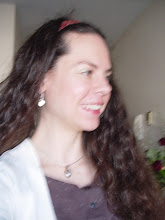The nature of wonder is not a force that pushes us passively from behind; it is situated ahead of us and attracts us with irresistible force toward the object of our astonishment; it makes us advance toward it, filled with enchantment.
Wonder is a dynamic value; nevertheless it does not drive us to activism but draws us to activity, to an activity we do as persons immersed in the contemplation of something that exceeds us. Maybe the particularity of wonder is that we find activity and contemplation inseparably blended within it.
I would like to elucidate right away that in speaking about wonder I do not intend to talk about something like Alice in Wonderland. Wonder is a very serious thing that, rather than leading us away from reality, can arise only from an attentive education that helps us to go always more deeply into reality. If we skim over things, we will never be surprised by them. Wonder is not an emotion of superficial people; it strikes root only in the person whose mind is able to settle and rest in things, in the person who is capable of stopping and looking. It is only through a continuos and profound observation of reality that we become conscious of its many aspects, of the secrets and mysteries it contains. Openness to reality and openness to wonder proceed at the same pace as we gradually enter into what is real, our eyes will come to see it as more and more charge with marvels, and wonder will become a habit of our spirit. . . .
Wonder is proper to the child, poet, artist, and also to the old person who has known how to live by beholding and contemplating the world surrounding him in such a way that reality has revealed ever widening horizons to him. (The Religious Potential of the Child, 138-39)



















